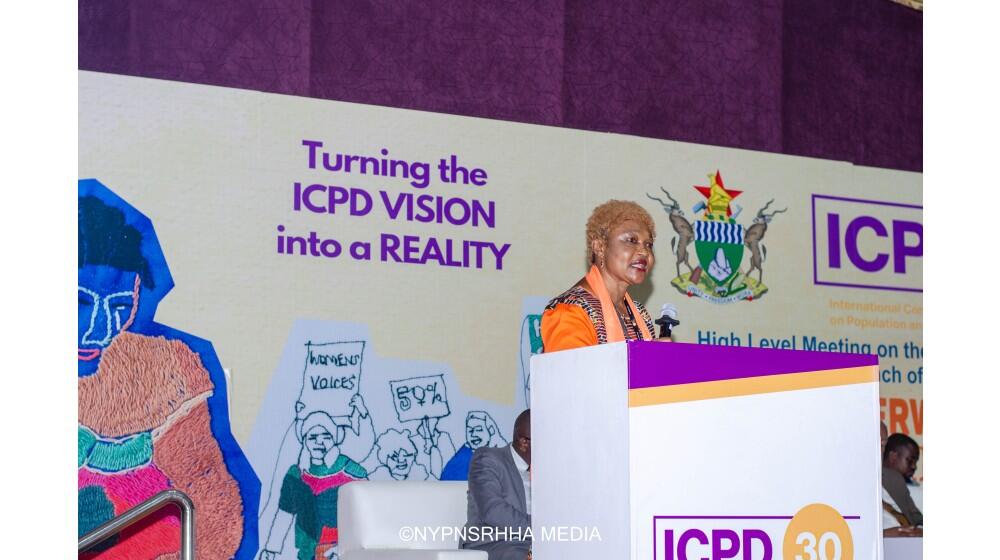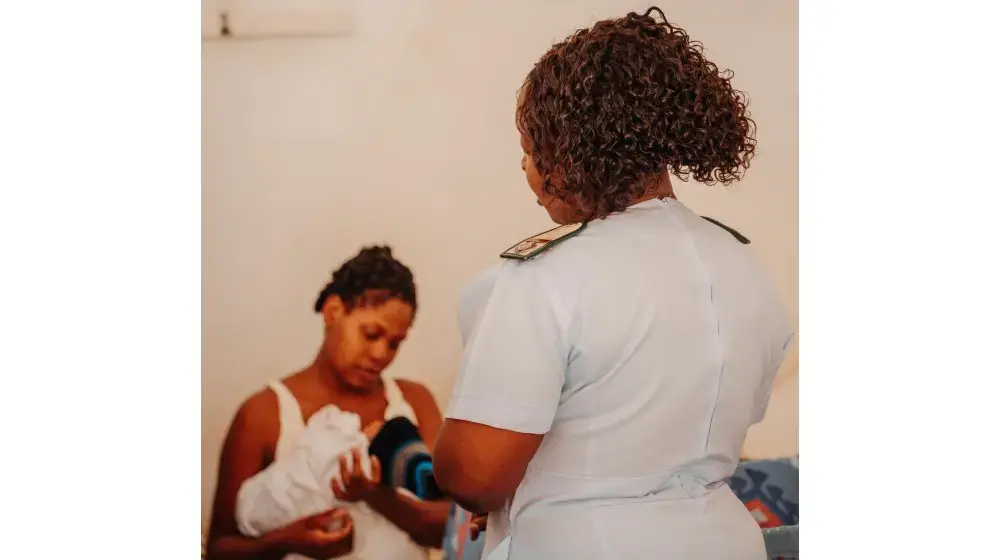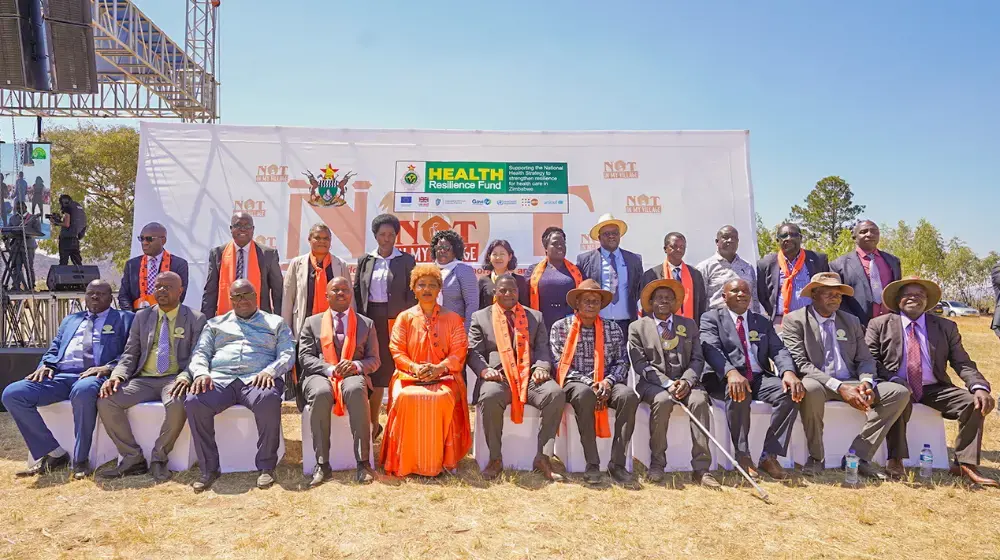Harare/Geneva 22 April 2024 – At a High Level Meeting to track progress on implementation of the International Conference on Population and Development Programme of Action (ICPD PoA), and in light of findings from a global report, the Government of Zimbabwe, the United Nations Population Fund (UNFPA) and partners today called for greater investment to accelerate progress on the population and development agenda.
The year 2024 is a milestone year for the global community as it marks the 30th anniversary of the ICPD. The ICPD conference, held in Cairo in September 1994, marked a pivotal moment in the global discourse on population and development. At this landmark conference, 179 member states, including Zimbabwe, agreed to the visionary PoA, which recognised sexual and reproductive health, women's empowerment, and gender equality as cornerstones of sustainable development.
As we mark 30 years since the ICPD, the High-Level Meeting on Country Progress Review focused on reflecting progress, sharing best practices and lessons learned in implementing the ICPD POA. Discussions also centred on how to address the unfinished business of the ICPD. The outcome of this meeting will feed into a global event to commemorate ICPD30, which will take place during the 57th session of the UN Commission on Population and Development (CPD57) from 29 April to 3 May 2024.
“To ensure that the next 30 years of progress includes everyone, we must pivot towards providing comprehensive, universal and inclusive sexual and reproductive health care and guaranteeing rights for all, regardless of their background,” said the Minister of Health and Child Care, Dr Douglas Mombeshora at the event.
He added: “This means designing tailored and targeted health programmes that address the multiple ways economic, social, political and environmental injustice impact people’s health and rights. It also means moving beyond measuring human experiences in broad averages and committing to the collection of disaggregated data across a variety of factors.”
The call for greater investment on population and development issues comes as findings of the 2024 State of the World Population Report (SWOP) released by UNFPA - the UN Sexual and Reproductive Health agency, have shown that despite many global gains in Sexual and Reproductive Health and Rights (SRHR) over the last thirty years, many women and girls in marginalised communities still struggle to access SRHR.
Entitled: “Interwoven Lives, Threads of Hope: Ending inequalities in sexual and reproductive health and rights”, the report highlights the role racism, sexism and other forms of discrimination continue to play in blocking broad gains in SRH for women and girls. The report highlights that women and girls who are poor, belong to ethnic, racial and indigenous minority groups, or are trapped in conflict settings, are more likely to die because they lack access to timely health care.
“In the space of a generation, we have reduced the unintended pregnancy rate by nearly one fifth, lowered the maternal death rate by one third, and secured laws against domestic violence in more than 160 countries,” said Dr. Natalia Kanem, UNFPA Executive Director. “Despite this progress, inequalities within our societies and health systems are widening, and we have not adequately prioritized reaching those furthest behind. Our work is incomplete but not impossible with sustained investment and global solidarity."
The findings and statistics painted by the report resonate with the reality in Zimbabwe. Although a lot of progress has been made in fulfilling some of the Global Commitments of the ICPD there is still a lot of unfinished business in Zimbabwe.
Progress on ICPD in Zimbabwe
- Making access to health services, including SRHR, a constitutional right to “every Zimbabwean”. Section 76 (1) of the Zimbabwean Constitution provides that: Every Citizen and Permanent Resident of Zimbabwe has the right to access basic health-care services, which include reproductive health-care services
- Zimbabwe has reduced maternal mortality from 651 in 2010 to 362 deaths per 100,000 live births in 2022. This means the number of women dying due pregnancy and childbirth related issues have reduced from about 7 per day to 4.
- Zimbabwe has one of the best performing Family Planning programmes in Southern Africa with a Modern Contraceptive Prevalence Rate (MCPR) for currently married women of 67% in 2023. This is an increase from 59% in 2010/11. This translates to a total of 2,050 000 women using family planning and contraceptive services in Zimbabwe.
- The government has stepped up budget allocation for family planning as part of increasing financing for contraceptives using our domestic resources. Over USD3 million has been invested in procurement of contraceptives in the last 2 years.
Unfinished business of the ICPD in Zimbabwe
- Although it has declined, the number of women dying while giving life remains high.
- Unmet need for family planning among married women declined from 13.8% in 2012 to 11% in 2023. The Zimbabwe Demographic and Health Survey of 2015 indicated that unmet need was higher in rural areas (10.9%) compared to urban (9.4%).
- Limited access to SRHR services by adolescents and some key populations affecting Universal Health Coverage.
- High adolescent pregnancies contributing to 25 to 30% of maternal mortalities. The census results also show that adolescent fertility rates are higher in rural areas (108.8/1,000) compared to urban areas (44.3/1,000).
- At least 49% of ever-married adolescent girls and women aged 15-49 years have experienced some form of emotional, physical, or sexual violence committed by their current or most recent husband or partner.
- Many women in Zimbabwe are dying from preventable cancers such as cervical cancer. Current estimates indicate that every year 3,043 women are diagnosed with cervical cancer and 1,976 die from the disease.
The State of World Population report is UNFPA’s annual flagship publication. Published yearly since 1978, it shines a light on emerging issues in the field of sexual and reproductive health and rights, bringing them into the mainstream and exploring the challenges and opportunities they present for international development.
For more information, please contact:
Geneva: Eddie Wright: ewright@unfpa.org +1 917 831 2074
New York: Anna Jefferys: jefferys@unfpa.org +1 917 769 7454
Donald Mujiri, National Protocol and Public Relations Manager Ministry Of Health and Child Care on: Email: dmujiri@gmail.com; Tel: +263 712 867 337
Bertha Shoko, Innovation, Communication and Visibility Specialist: shoko@unfpa.org and Tel: +263 772 782299





